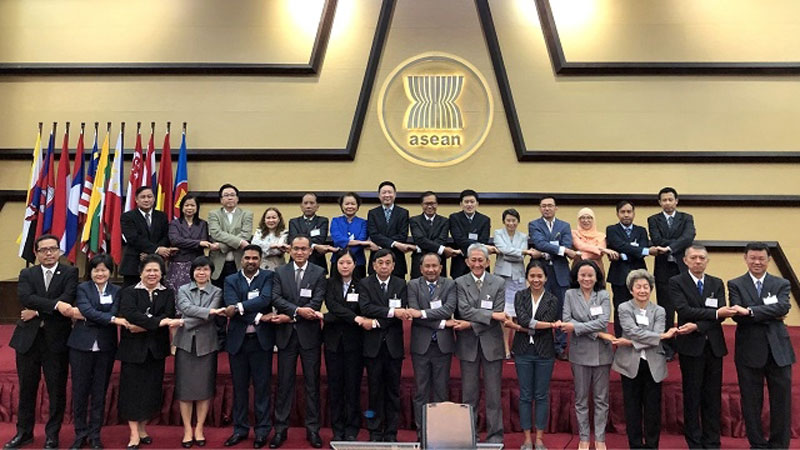


The event was attended by representatives of the 10 member countries, 18 specialised agencies of the bloc and the ASEAN Secretariat. The Vietnamese delegation was led by Ambassador Tran Duc Binh, head of the country’s permanent mission to ASEAN, along with officials from the ministries of foreign affairs, national defence, public security and justice.
Participants noted the strides in all four areas of the blueprint with 258 or 89% of the 290 action lines implemented. That has helped improve living standards, while consolidating law-governed states, legal systems and judicial foundations to build a rules-based and people-centred ASEAN community.
The ASEAN countries have ratified and enforced the ASEAN Convention Against Trafficking in Persons, approved the Guidelines on Consular Assistance by ASEAN Member States’ Missions in Third Countries to Nationals of Other ASEAN Member States, opened an ASEAN judiciaries portal, and set up ASEAN lanes at some airports.
The bloc has also carried out cooperation activities relating to fighting terrorism and drug and human trafficking; ensuring nuclear security and safety and cyber security; humanitarian aid and disaster relief; and marine safety and security.
Its relations with partners have been enhanced, officials said, adding that ASEAN’s central role in the regional architecture and regional cooperation is widely respected.
In November 2018, ASEAN lifted its dialogue relationship with Russia to a strategic partnership and agreed in principle to elevate ties with the EU to the same level.

Participants in the 11th Coordinating Conference for the ASEAN Political-Security Community pose for a group photo.
Many countries have expressed their wish to establish partnerships with the bloc like Bangladesh, Sri Lanka, Morocco, the United Arab Emirates, Chile and the Democratic People’s Republic of Korea. So far, 90 countries and organisations have sent ambassadors to ASEAN, which in turn has set up 54 committees in third countries and major international organisations.
ASEAN-led cooperation mechanisms and frameworks, including the East Asia Summit, the ASEAN Plus One, the ASEAN Plus Three, the ASEAN Regional Forum, and the ASEAN Defence Ministers’ Meeting Plus, have promoted dialogue, built trust and contributed to joint efforts to resolve problems of common concern, according to the meeting.
The meeting also applauded the progress in negotiations on a Code of Conduct in the East Sea between ASEAN and China. Participants also reiterated the importance of maintaining peace, stability, security and navigation and aviation safety and freedom in the East Sea, and settling disputes by peaceful means and on the basis of international law, including the 1982 United Nations Convention on the Law of the Sea.
Discussing future cooperation, participants said member nations and specialised agencies should keep making efforts to carry out all action lines of the APSC Blueprint 2025 and strengthen connectivity among the ASEAN Community. They also underlined the need to intensify coordination among agencies, especially in inter-sectoral and inter-pillar issues.
The APSC Blueprint 2025 was approved on November 21, 2015, with a view to building an APSC by 2025 in four main areas: a rules-based, people-oriented and people-centred community; a peaceful, secure and stable region; an outward-looking community that deepens cooperation with external parties, and upholds ASEAN centrality in the evolving regional architecture; and a community with strengthened institutional capacity.
The APSC is one of three pillars of the ASEAN Community, which also includes the ASEAN Economic Community and the ASEAN Socio-Cultural Community.